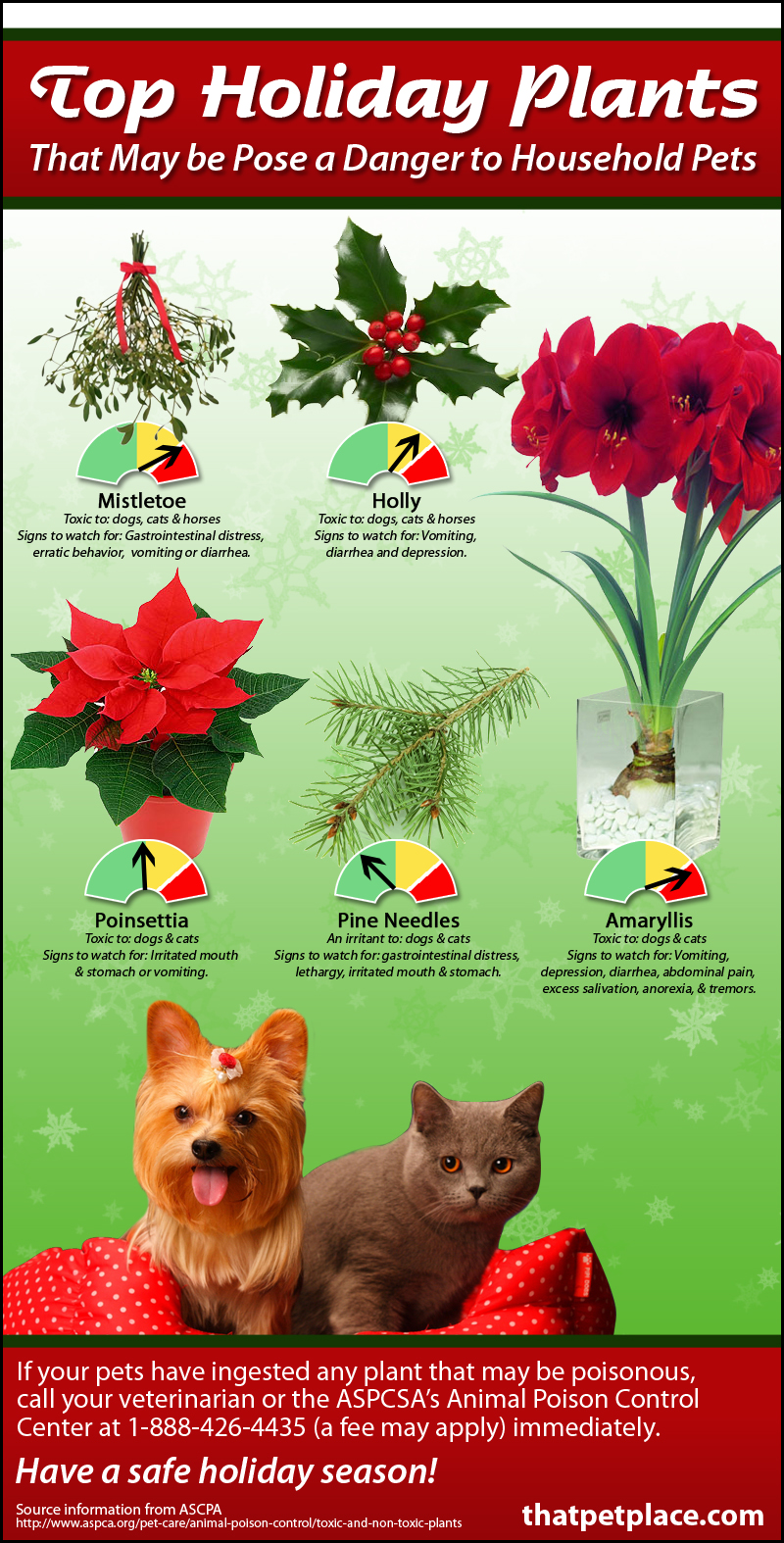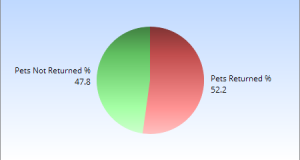 Nothing quite ruins the holiday spirit like a trip to the emergency vet… especially for something that could have been avoided. There are tons of plants that are poisonous to your pets that are available year-round (view the full list on the ASPCA website), but around the holidays many of these popular but poisonous plants seem to be in every home!
Nothing quite ruins the holiday spirit like a trip to the emergency vet… especially for something that could have been avoided. There are tons of plants that are poisonous to your pets that are available year-round (view the full list on the ASPCA website), but around the holidays many of these popular but poisonous plants seem to be in every home!
Do yourself, your vet, and your pet a favor and keep these poisonous holiday plants out of your home or safely out of reach of your pets!
Poinsettia
Many people know that poinsettias as toxic, however they are really only mildly toxic and aren’t too big of a concern for most pet owners, but better safe than sorry. To be on the safe side I always leave mine in the office instead of in my home. I really love this festive plant… But I love my furry family more.
Signs to watch for: Irritated mouth and stomach or vomiting.
Mistletoe
Ah, to be kissed under the mistletoe… by my dog (hehe). If you have a spring of live mistletoe in your home, please keep it well out of reach of your pets. Along the same lines as the Poinsettia, this plant is now thought to be mildly toxic, but I like to play it safe.
Signs to watch for: Gastrointestinal distress, cardiovascular collapse, dyspnea, bradycardia, erratic behavior, vomiting, diarrhea, or low blood pressure.
Holly
Holly berries are very pretty, but they’re also attractive to dogs. This seasonal plant can cause symptoms that are similar to when a dog eats chocolate or caffeine. The bark, leaves, berries and seeds are all poisonous.
Signs to watch for: Vomiting, diarrhea and depression/lethargy.
Amaryllis
Amaryllis plants are toxic to both dogs and cats. These bulbs are typically given as gifts this time of year. If you’re buying for a friend with a pet, pick a pet-friendly plant over this pretty bulb.
Signs to watch for: Vomiting, depression, diarrhea, abdominal pain, excess salivation, anorexia, and tremors.
Pine Needles
While not exactly toxic to your pets, you will want to keep your pet from eating pine needles from the tree or the floor. Pine oils can irritate the mouth or stomach and if swallowed the needles themselves have the potential to puncture the lining of the stomach or intestines. Play it safe and sweep up those excess pine needles or put a barrier around the tree. Better yet, go for the old fake tree and save yourself the hassle of picking up needles for the next 6 months!
Signs to watch for: gastrointestinal distress, lethargy, irritated mouth and stomach.
Of course, if your pet has ingested any of these plants, please contact your local veterinarian, your emergency vet or the ASPCA Animal Poison Control Center at 888-426-4435.
 That Pet Blog That Pet Place Pet Blog
That Pet Blog That Pet Place Pet Blog



In the article we did stress that these plants are only mildly irritating. They’re not as toxic as once thought, but they can cause mouth irritation and stomach upset if too much is ingested. Thanks for your thoughts!